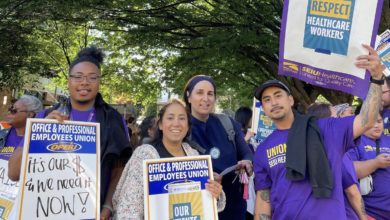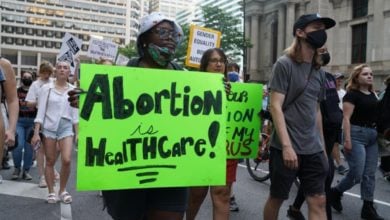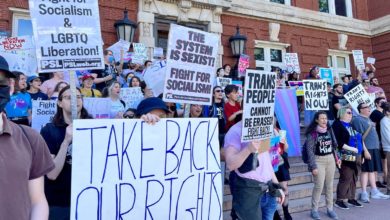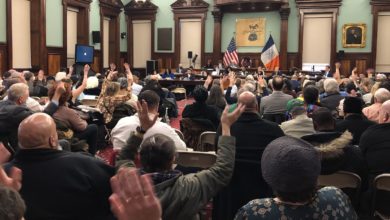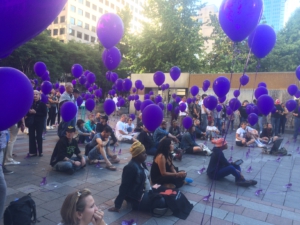
On Oct. 26, President Donald Trump declared the opioid addiction and overdose crisis a “nationwide public health emergency” at a White House event. While the death toll related to opioid abuse certainly rates being deemed a public health emergency — as has been stated by many, it represents a Sept. 11 every three weeks — Trump’s declaration does absolutely nothing to actually dedicate more federal funds to address this life-and-death crisis.
Recovery advocates were quick to respond. “While we applaud this latest action as a significant step in addressing our nation’s number one public health crisis we must continue the work to ensure that the necessary resources are appropriated to build on this progress to make recovery possible for thousands in need in communities across America,” said Richard Buckman, board chairman of Faces & Voices of Recovery.
Other advocates took aim at Trump’s use of stigmatizing language. “The President referred to the opioid epidemic as a ‘national shame.’ While we welcome today’s declaration, we want to tell the American public that there is nothing shameful or dishonorable about having a medical condition known as addiction or substance use disorder. The words we use matter,”explained Patty McCarthy Metcalf, Executive Director of Faces & Voices of Recovery.
“Our country weeps as we wait for bold leadership”
Author William L. White (Slaying the Dragon: The History of Addiction Treatment and Recovery in America) said: “It remains to be seen whether the Presidential declaration of the opioid crisis as national public health emergency will do anything of significance in reducing opioid deaths and quelling the larger opioid epidemic.”
White addressed Trump’s announcement of a new policy “to overcome a restrictive 1970s-era rule that prevents states from providing care at certain treatment facilities with more than 16 beds for those suffering from drug addiction,” saying that giving states the option to waive Medicaid’s “IMD” (institute for mental disease) exclusion “could result in an expansion of treatment, but I still sense no systematic response as was proposed in the 2016 Surgeon General’s report Facing Addiction in America.”
White rightfully called out the “culpability of the pharmaceutical industry in the rise and continued maintenance of this epidemic.” Awareness of the role of the pharmaceutical industry has been pushed to the forefront by lawsuits such as that being filed by the city of Everett, Wa. and by a recent article in Esquire on the secretive billionaire Sackler family that got rich from sales of the drug Oxycontin.
White also called out the hypocrisy inherent in the administration’s call, pointing out that Trump had delayed and then declared a public health emergency “while simultaneously calling for a return of the simplistic and disastrous polices (e.g., just say no, mass incarceration) of the past that helped set the stage for this tragedy. … We need innovative policy initiatives, mass mobilization of local communities, an expansion of harm reduction initiatives, an expansion and more effective utilization of indigenous recovery support institutions, and a radical redesign of addiction treatment that provides long-term support for personal and family recovery. Our country weeps as we wait for bold leadership.”
Harm reduction struggle
The struggle for effective harm reduction measures is ongoing. In cities such as San Francisco and Seattle, advocates are pushing for the adoption of Safe Consumption Spaces. SCS is a research-validated tactic that prevents overdose deaths and the spread of disease while building relationships that help bring addicts into treatment.
In King County Washington (the county in which Seattle is located) after a lengthy process, the public health department decided to support SCS, calling for two sites to be opened in the county. Immediately a rightwing backlash attempted to stop this common sense public health measure as reactionary petition gatherers (most of whom were also collecting signatures for an anti-trans “bathroom bill” initiative) campaigned to put a measure on the ballot prohibiting SCS in the county. A coalition of organizations went to court and the court ruled that this measure may not be allowed on the ballot. Judge Veronica Alicea Galvan wrote that state law gives officials decision-making authority on public health measures, and the initiative would interfere with the health board and County Council’s duties and obligations. Now the struggle is on to get SCS funded for two locations and advocates and people in recovery from substance abuse disorder will be in full attendance at Seattle City Council on Nov. 1 to demand full funding for SCS.


